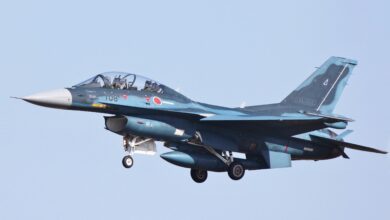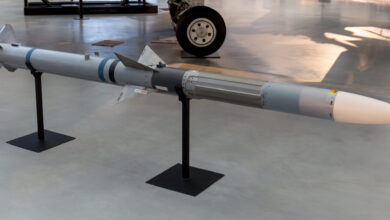Japan Approves Budget Including Record Defense Spending
Japan on Friday approved a 114 trillion yen ($839 billion) budget for the year ahead, including record defense spending after a major security strategy overhaul announced this month.
The fiscal 2023 budget approved by the cabinet includes 6.8 trillion yen ($51 billion) for the defense ministry, up approximately 30 percent from last year.
It comes a week after the government approved a new security strategy, including plans to raise defense spending to two percent of GDP by fiscal 2027, bringing Japan in line with NATO member guidelines.
In its largest defense shake-up in decades, Japan also vowed to reshape its military command, and acquire new missiles that can strike far-flung enemy launch sites.
The policy overhaul is laid out in three defense and security documents that describe Beijing as “the greatest strategic challenge ever to securing the peace and stability of Japan,” as well as a “serious concern” for the international community.
The new budget includes 211.3 billion yen for buying US-made Tomahawk cruise missiles, and 93.9 billion yen for mass production of Japanese-made type 12 surface-to-ship missiles.
Both items are intended to help Japan secure what it calls “counterstrike capacity” — the ability to hit launch sites that threaten the country.
“We plan to acquire all the Tomahawk missiles we need in the next fiscal year,” a defense ministry official told reporters on condition of anonymity, declining to confirm reports Japan will buy up to 500.
The defense budget also includes 110.4 billion yen for acquiring equipment and training Japanese troops to operate the Tomahawks.
The missiles will be deployed in 2026 at the earliest, officials said.
The budget also contains money for building ships equipped with the Aegis defense system.
It still has to be approved by parliament and could prove controversial with debate raging over how to pay for rising defense spending.
Japan’s budget has been increasing for decades due chiefly to snowballing medical care and social welfare fees in the rapidly aging society.
The Japanese new strategy documents reflect "Japan’s staunch commitment to upholding the international rules-based order and a free and open Indo-Pacific," Secretary of Defense Austin says in a statement. Austin welcomes Japan increasing defense spending to 2% of GDP in 2027. pic.twitter.com/2jaoAWbRUL
— Ryo Nakamura (@NikkeiDC_Ryo) December 16, 2022
Roughly one-third of the government’s revenue relies on the issuance of government debts.
Officials say they will secure defense funding largely with spending cuts and reallocating surplus funds.
But Prime Minister Fumio Kishida has also raised the possibility of more taxes to help pay for the spending, an unpopular proposition.












